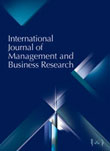Inter-Partner Interactions and Knowledge Transfer Mechanisms in the Chinese Automotive Industry: A Qualitative Research Based on Dual Managerial Perceptions
Author(s):
Abstract:
The purpose of this study is to extend the existing knowledge of inter-firm knowledge transfer research and provide a deeper understanding of knowledge transfer practice in an alliance context, as well as the reasons for such a practice. This study reports on relevant results derived from semi-structured interviews with 16 top managers in a Chinese international joint venture (IJV) formed by two automobile companies, one in China and the other in the USA, conducting interactive cooperation and inter-firm knowledge transfer practices. It was found that the partners in this alliance brought together their complementary capabilities in automotive technology and management expertise to build an independent organization with its own board of directors and staff members to facilitate knowledge sharing and alliance learning. This consisted of these three elements: (1) Contracts and agreements that clearly articulated each member’s objectives and responsibilities involved in alliance knowledge transfer; (2) Inter-organizational knowledge transfer involving a set of communication and interacting knowledge procedures, such as identification, contribution and development; (3) Partnership evolution at the interfaces between the participating firms. These findings raise an important question of how to ensure satisfaction for inter-partner interactions and knowledge exchanges in the Chinese automotive industry context. Based on literature review tangible facts and interview interpretations, this paper provides a deeper understanding of the organizational activities involving cooperation and the dynamic knowledge transfer routines, which is a significant extension of past static cross-sectional conceptualisations. This paper proposes an inter-firm knowledge transfer and cooperative learning process emphasizing that the issue of sharing knowledge in IJVs and bringing IJVs into profitability requires partner companies to engage in inter-partner learning to benefit from the transfer of knowledge. A key implication for the firms, therefore, is the critical ability to deal effectively and efficiently with the transfer of knowledge resources and gaining a competitive advantage consequently.
Language:
English
Published:
International Journal of Management and Business Research, Volume:3 Issue: 2, 2013
Pages:
89 to 105
magiran.com/p1194537
دانلود و مطالعه متن این مقاله با یکی از روشهای زیر امکان پذیر است:
اشتراک شخصی
با عضویت و پرداخت آنلاین حق اشتراک یکساله به مبلغ 1,390,000ريال میتوانید 70 عنوان مطلب دانلود کنید!
اشتراک سازمانی
به کتابخانه دانشگاه یا محل کار خود پیشنهاد کنید تا اشتراک سازمانی این پایگاه را برای دسترسی نامحدود همه کاربران به متن مطالب تهیه نمایند!
توجه!
- حق عضویت دریافتی صرف حمایت از نشریات عضو و نگهداری، تکمیل و توسعه مگیران میشود.
- پرداخت حق اشتراک و دانلود مقالات اجازه بازنشر آن در سایر رسانههای چاپی و دیجیتال را به کاربر نمیدهد.
In order to view content subscription is required
Personal subscription
Subscribe magiran.com for 70 € euros via PayPal and download 70 articles during a year.
Organization subscription
Please contact us to subscribe your university or library for unlimited access!


